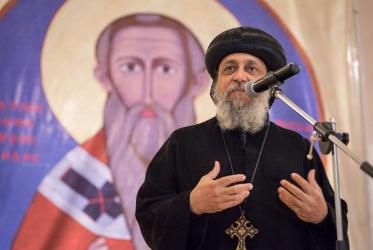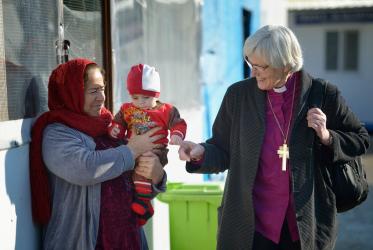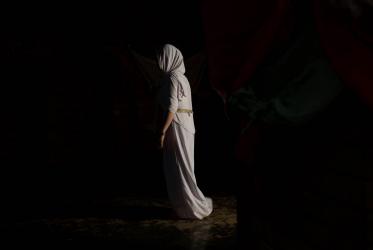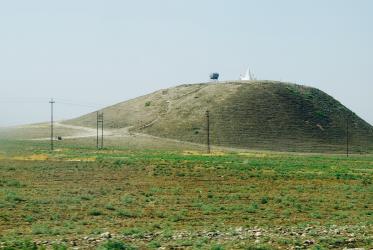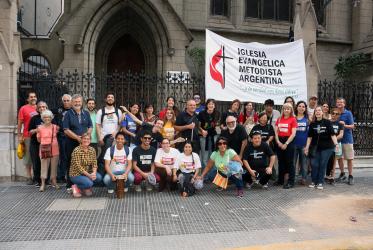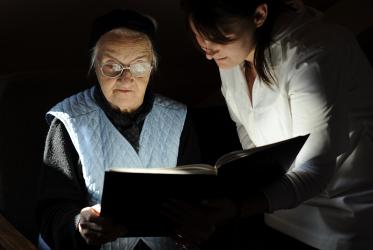Displaying 101 - 120 of 163
21 December 2017
Rebecca Dali: My faith in God motivates me every second
24 August 2017
Carrying the cross without fear
12 April 2017
Holy work for the Holy Land
29 March 2017
WCC offers condolences in wake of Great Britain attack
23 March 2017
“We can’t go back as long as we know we are not secure”
26 January 2017
South Sudan Council of Churches issues message to UN delegation
07 September 2016
Churches help keep memories alive for Argentinian people
07 April 2016
United Bible Societies: A world fellowship serving the churches
16 December 2015



